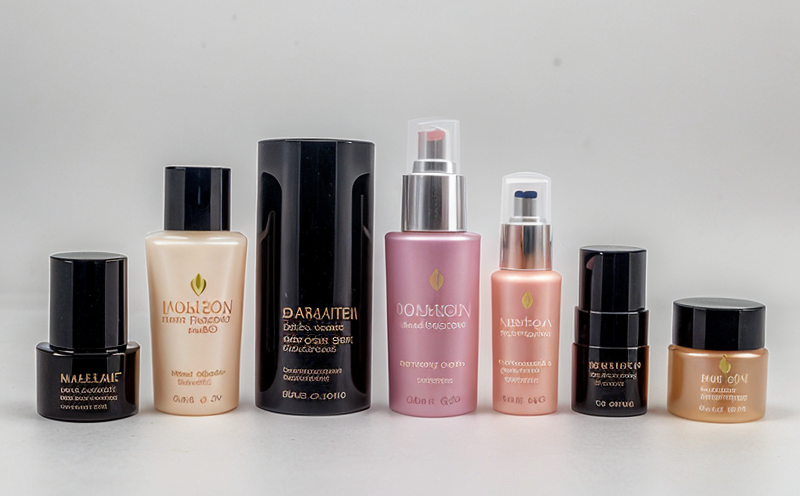FDA Compliance Testing of Packaging for Cosmetics
In the highly regulated world of cosmetics, ensuring compliance with FDA regulations is a critical responsibility. The FDA's Food Contact Notification (FCN) and its associated standards are designed to protect consumers from harmful substances that could leach into cosmetic products through packaging materials. This service ensures that any interaction between the packaging and the product does not pose a health risk.
The primary focus of our testing is on the migration of substances such as plasticizers, antioxidants, pigments, and other additives used in packaging materials like plastics, metals, papers, and films. Our comprehensive approach includes evaluating the potential for chemical interactions between the packaging and the cosmetic product under real-world conditions.
Our laboratory adheres strictly to FDA guidelines and international standards such as ISO 10350-2 and ASTM F86 to ensure that our test methods are both rigorous and reliable. We also follow the specific migration limits (SMLs) set by the European Union, which are critical for ensuring compliance with Directive 2011/95/EU on plastic materials and articles intended to come into contact with food.
The testing process involves a series of steps designed to simulate real-world conditions. Specimens from the packaging material are prepared according to FDA guidelines, and then they undergo immersion in various cosmetic formulations that mimic the product's chemical composition. The specimens are subjected to temperature cycling over time to replicate the expected shelf life.
The extracted substances are analyzed using high-performance liquid chromatography (HPLC), gas chromatography-mass spectrometry (GC-MS), and other advanced analytical techniques. These methods allow us to identify and quantify even trace amounts of potentially harmful compounds that might migrate into the cosmetic product.
Our testing process is designed to provide a thorough assessment of the safety of packaging materials used in cosmetics. By ensuring that these materials do not contribute to contamination or degradation, we help our clients meet FDA requirements and maintain consumer trust.
Applied Standards
| Standard | Description |
|---|---|
| ASTM F86-19 | Standard test methods for evaluating the migration of substances from packaging into food simulants. |
| ISO 10350-2:2017 | Plastics – Determination of the leaching of additives and other constituents – Part 2: Migration in contact with food simulant or under defined conditions. |
| EU Directive 2011/95/EU | Specific migration limits for plastic materials and articles intended to come into contact with food. |
Eurolab Advantages
At Eurolab, we pride ourselves on providing unparalleled expertise in cosmetic testing. Our team of chemists and engineers has extensive experience in the regulatory requirements set by the FDA and other international standards bodies. We stay abreast of the latest developments and changes to ensure that our clients are always compliant with the most stringent regulations.
- Comprehensive understanding of FDA guidelines and EU directives
- State-of-the-art analytical equipment for precise migration analysis
- Experienced staff with specialized knowledge in cosmetic packaging safety
- Extensive experience working with a variety of packaging materials and cosmetics
We offer our clients peace of mind by providing detailed reports that not only meet regulatory requirements but also provide valuable insights into the performance of their products. Our team is dedicated to helping you navigate the complex landscape of cosmetic regulations.
Quality and Reliability Assurance
- Stringent quality control measures are in place at every stage of the testing process, from specimen preparation to final analysis.
- We use only calibrated and certified instrumentation that meets or exceeds industry standards.
- All test results are reviewed by our team of experts to ensure accuracy and consistency.
Our commitment to quality is reflected in the reliability and reproducibility of our test results. We provide detailed documentation for every test conducted, ensuring that clients have a comprehensive record of their packaging's compliance with FDA regulations.





